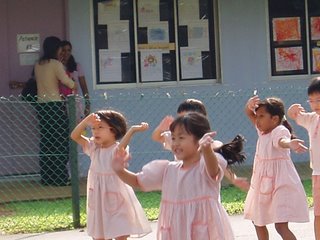The school vacation is starting in a week's time and many families will be taking time-off to go for holiday. Here are some Do's and Don'ts that may help you make your vacation an enjoyable experience:
Some Do'sDo Plan To Have Plenty Of FunParents need to think ahead what the children and the adults would like to do. Discuss with them and involve them in your planning to gather ideas. It is more likely that the children will have plenty of fun if the activities are agreed on together.
Be careful not to let your vacation turns into a "watch-TV-in-the-hotel" routine. You need not fly all the way to Japan, New Zealand, Europe or Vanuatu to watch TV! So plan properly for the enjoyment of the family.
Do Plan Vacation According To The Ages of ChildrenYoung children enjoy going to places where they can play with other children. They prefer activities in which they can jump, run, ride, climb, scream, etc. Taking them for a trip to hunt for antique would be most disastrous! They will be real bored and you will probably end up listening to many hours of complaints.
It may be better to plan part of the day on children's activities and then leaving some time when the adults can go hunting for antique or appreciate some European Art on their own.
On the other hand, older children will know how to occupy themselves. They may wish to enjoy a common activity with you and then go exploring or shopping on their own
Do Bring Along An Activity-BagRegardless of whether you are traveling by air, sea, train, coach or in a car, it is always useful to carry an activity-bag containing fun things for your children. These items should not be their everyday stories books or toys.
Consider some new thing to give it the novelty. Crossword puzzles, crayons with colouring books, crossword puzzles, word games, card games and activity books are some suggestions. This is especially essential for long periods of travel. It will help to keep the children occupied.
Do Build Up Children's Money Management SkillsIt is a good opportunity during vacations for children to learn how to manage their money. They can be given a specific amount to spend and taught to budget carefully. Guide them to record their spending with notepads. This provides a good learning experience for children to handle actual cash transactions.
Do Involve Children in Learning ExperiencesIt is more meaningful to let your children have more information about the place they are going to visit. Before the trip, you can check up travel brochures with them; encourage them to find out more about the place of visit. Let them find out on historical sites and places of interest the family are planning to visit during the vacation.
Do Be AdventurousParents can set good examples by willing to try new ideas, new activities, new foods and new ways of doing things. By being adventurous, you are opening yourself and your family out to new experiences.
Do Expand Children's Writing SkillsEncourage your children to take notes throughout the trip. Allow them to use your camera or video recorder to capture pictures and video clips of the places visited. Children can then make a vacation scrapbook out of these items. They can write a few lines below each photograph/picture in the scrapbook.
Do Bring Essential MedicationRemember to pack some essential medicines for common relief of cold, fever, stomach ache, headache etc. Prepare and stand-by the necessary medication if your children have illness such as asthma, allergies.
Some Don'tsDon't Nag!It is usually the mothers that tend to nag at their children and spouses. Don't spoil the holiday by constantly nagging over how slow everyone is; why Daddy is wasting his money on getting that rare art item; why the children are staying in the pool for so long; why Dorothy or Nathan can't sit still; etc, etc
Don't Be Rigid With Your ScheduleFamily vacation is the time to enjoy one another in a more relaxed setting. It is not necessary to follow rigidly to your schedule, like getting up at 6 am, having your breakfast at 7 am, going sightseeing, and sleeping at 9 pm. This is the time to laze a little and spend your day however you like it. It is not the right time for strict discipline. If you missed some of the planned activities for the day, you still have the next day. So relax, don't stress yourself out on a vacation.
Don't Be Too Upset Over IrregularitiesIt might be the weather, the travel agent, the itinerary, or even the country you are visiting, but errors or unforeseen incidents may happen at times to disrupt your vacation. Remain patient, be tolerant and show compassion. If you lose your cool and start to blame and reprimand your children or spouse, you will spoil the whole family enjoyment.
Take the opportunity of such experiences to teach your children how to resolve problems as a family. If you have lost your way, or the car breaks down, or someone get injured; get together as a family and try to find a solution
Don't ComplainStop complaining if you want to have a great family vacation. Don't compare the shops, the food or the hotels with those in your home town. These are not going to be the same.
So instead of complaining about the low-grade merchandise at the store or the tasteless food of the poor-service hotels, let's learn to make do with what is available. Every place is unique, and don't expect it to be of the same standard back home. Each has its own beauty and local flavour.
Don't Carry More Than You Need
Travel light. Consider the various seasons and carry appropriate clothing. Lugging your heavy baggage makes it unpleasant to move around conveniently. Remember that all of you will be adding more to your luggage as you shop around.
Making a trip together as a family is a precious experience that we should all treasure. Such experiences will normally leave an indelible mark in the memories of our children. This will be far-reaching in imparting them the value of family togetherness and happiness.















